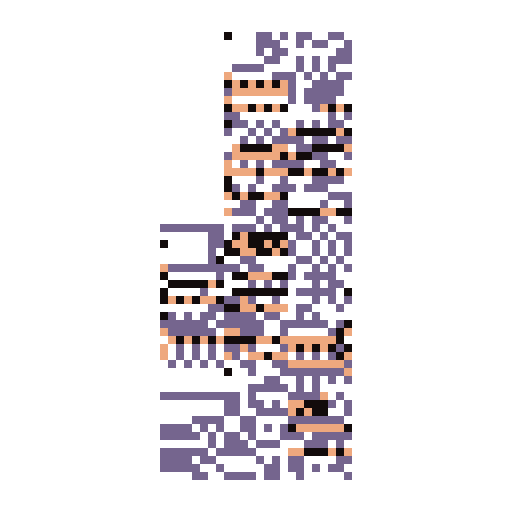Essentially, the new law will mean that storefronts like Steam will no longer be able to use terms such as “buy” or “purchase” when advertising a game that always requires an online connection. Since you won’t technically own the product and servers being taken offline would render the product useless, a different word will have to be used.
The official phrasing in the bill’s summary reads, it will “prohibit a seller of a digital good from advertising or offering for sale a digital good, as defined, to a purchaser with the terms buy, purchase, or any other term which a reasonable person would understand.”
That’s actually a very good reason IMO.
I’m waiting for something like this since forever. I hope other states and countries will follow. This is huge.
It’s not only steam, but also Amazon, Apple, you name it.
Buy means buy, not “rent until we decide to render your product useless”!
I’d rather have them force the stores to actually sell the products
Can’t wait to see what marketing BS replaces it.
My money is on Experience!
Or Activate!
Or Join!
Or Unlock!
You know something with an exclamation mark.
“Add to your library” is my guess.
To long and no explanation mark, it would never work.
Hopefully “license”, since that’s what it actually is
Money’s on subscribe.
SUBSCRIBE!
Exclamation*
Don’t care, I’m having a blast!
Wait so if a game doesn’t not need online connection it can say buy?
That is such a huuuge advantage to indie devs that can let you own things.
No, it’s not just about DRM, currently the storefronts do not guarantee continued access to the content.
For example, Valve can just close your Steam account at their discretion and you would no longer be able to log in or download any of your games
To be honest, it sounds like it would affect ALL digital products, not just those requiring an active online connection. Or at the very least even those with Steam DRM for verification.
I wonder if even without this law, one could claim false advertising against any subscription service that looks like a bit to own service.
I don’t see why there’s a distinction for always online games. You don’t “own” any game you buy off steam. All you get is a license to play the game off steam. You can’t sell or trade them.
Support GOG! Fuck DRM! Own your shit!
Even if you buy a DVD, the only thing you are “buying” is the physical media and a license to operate the softwate. You don’t own the software stored on the media, you must use it in accordance with the license agreement or potentially face legal action. The main thing about digital storefronts is that it’s easier to revoke the license.
If you buy a movie, you are buying the rights to private use of the movie, you aren’t buying the copyright. You can sell a DVD movie to someone else and it’s not illegal and doesn’t subject you to copyright law.
If you buy a game that has a license key, then yeah, you are buying a license to the game even if it has physical media, but buying a physical copy of an Xbox game doesn’t have a license key (well, more recently they do, the box contains a store key instead of a disc, but before that was common practice)
It doesn’t fix anything however
Not exactly accurate. The button can still say Buy. The law says that they have to get extra acknowledgment from the buyer that they actually mean license. So it will say buy, and then it will pop up and say you aren’t buying the game, only a license, and then you have to click ok I understand. More nags. What we really need is another license agreement to pop up that nobody reads.
The EULA is a wall of text that means nothing to most people, just like the TOS. The CLA (California License Agreement) or whatever this will be called with be no different, unless they specifically demand a very short and to the point.
*"You are buying a game licence that can legally be revoked without providing a refund.
Ubisoft can revoke the game license at any time for any reason.
Ubisoft guarantees access to the license for 0 days."*
I have no expectation that it will be that clear and concise.
Edit: Looks like they have chosen not to discuss the language of the “clear expansion” at all. Likely because whoever wrote the law didn’t know the subject they’re regulating.
From the article:
The official phrasing in the bill’s summary reads, it will “prohibit a seller of a digital good from advertising or offering for sale a digital good, as defined, to a purchaser with the terms buy, purchase, or any other term which a reasonable person would understand.”
Alternatively, storefronts can clearly explain that you’re buying a license and that your purchase isn’t a permanent transaction, meaning the license can be revoked at any time by the issuer. The most important part of the bill states that passing it will be “ensuring that consumers have a full understanding of exactly what they have bought.”
It’ll probably be a wall of text like maybe a big fat paragraph and a little vague line at the bottom, or somehow manage to be short but still vague enough to not discourage sales while just barely straddling the line of being acceptable to the Californians who might one day end up bothering to look at how this ends up going, if they don’t forget to.
I was alarmed most by part B:
(B)The seller provides to the consumer before executing each transaction a clear and conspicuous statement that does both of the following:
(i)States in plain language that buying or purchasing the digital good is a license.
(ii)Includes a hyperlink, QR code, or similar method to access the terms and conditions that provide full details on the license.
The way I’m reading that it’s just going to say something like: “Attention, you access to this game which can be revoked or abandoned at any time. For more information follow this link and read the license. Press here to continue your purchase.” Nobody will read it.
Hopefully (fingers crossed) the blurb even saying “Revoked at will” will finally out people on edge
A while back I was discussing Ross Scott’s ‘Stop Killing Games’ proposal in the EU, in some other lemmy thread.
If passed, that law would make it so you cannot make and sell a game that becomes unplayable after a person buys the game, or you have to refund the purchase of the game itself as well as all ingame purchases.
If gameplay itself is dependant on online servers, the game has to release a working version of the server code so it at least could be run by fans, or be refunded.
If it uses some kind of DRM that no longer works, it has to be stripped of this, or properly refunded.
Someone popped in and said ‘well I think they should just make it more obvious that you’re not buying a game, you’re buying a temporary license.’
To which I said something like ‘But all that does is highlight the problem without actually changing the situation.’
So, here we are with the American version of consumer protection: We’re not actually doing any kind of regulation that would actually prevent the problem, we’re just requiring some wordplay and allowing the problem to exist and proliferate.
All this does is make it so you can’t say ‘Buy’ or ‘Purchase’ and probably have a red box somewhere that says something like ‘You are acquiring a TEMPORARY license that may be revoked at any time for any reason.’
US gets a new content warning. EU is working toward actually stopping the bullshit.
EDIT: A few days after I posted this, Ross put out a video with more or less the same angle as I presented, that this solves nothing, changes nothing, and arguably actually makes it technically worse as this functionally acts as the government officially endorsing the status quo: You have no legal standing to contest your evaporating game, as it followed the rules and put a warning or changed some wording.
Honestly, that really does track with how shit works in here.
“The orphan crushing machine may contain components known to the state of California to cause cancer”
And we’re done! Fixed all the problems!
To which I said something like ‘But all that does is highlight the problem without actually changing the situation.’
I think the idea is, that the minimally invasive regulation only has to fix the information imbalance between producer and consumer. Then, once the consumer has all the information, they can make an informed racional market actor descision. That’s supposed to price shitty rip offs out of the market eventually.
… yeah I don’t believe it works either.
It doesn’t make any sense if the whole market is shitty rip offs.
In this case I’m not saying all games are bad, shitty games, but they are all shitty rip offs in the sense that they all legally can, and many do just suddenly deactivate, and you’re not even compensated for this.
The whole fundamental legal trick the software industry has pulled is making everything into a license for an ongoing service, as opposed to a consumer good.
And the problem is that this is now infecting everything, expanding as much as possible into anything with a chip in it.
Even if the consumer is perfectly informed, it doesn’t matter if the entire market is full of fundamentally unjust bullshit, as there aren’t any alternatives.
All you get is consumers who are now informed that their digital goods can poof out of existence with no recourse.
But the whole market isn’t shitty rip offs.
Can’t Stardew Valley, Undertale, Outer Wilds and No Man’s Sky also be legally removed from your Steam library for any reason?
Yes, and if you don’t like it you don’t have to buy them. It’s why I prefer not to use Steam.
Please reread the second sentence.
The second sentence isn’t true.
They’re just gonna go all in on marketing to Kyle and his CoD buddies, and ignore the nerds who care about weird shit like ownership.
At the same time, both need to be done, your solution doesn’t solve the fact that it’s only a license you’re purchasing and you depend on a third party service to download the game in most cases.
There are two different problems. One is easier to solve.
If gameplay itself is dependant on online servers, the game has to release a working version of the server code so it at least could be run by fans, or be refunded.
I replied to one of it a while ago and basically, this part is impossible since developer also “license” 3rd party backend/plugins/software solutions to make their server working. The developer do not have the right to release licensed code/api etc.
meaning, say if a backend have the free learning version of license, the developer are bound to the commercial license, which dictates if they can release code that involve 3rd party code/api.
You don’t need to be protected from video game sales, you need to be protected from fraudulent game sales, that’s it.
If you want to buy a game that runs on proprietary servers that will shutdown one day, you should be allowed to do that.
The Stop Killing Games concept is not stopping or protecting anyone from buying video games.
… Neither is slapping a warning label onto games that says ‘hey you don’t own this the way you own a blender.’
That’s very strange framing to use.
What SKG does is mandate that your purchased product be technically possible to be usable in perpetuity, or refund the cost of it.
Everyone knows servers cost money to run, so its not reasonable to mandate every game that is totally online only just have servers up forever, maintained by the publisher.
But what is also unreasonable is needless, always online DRM that shuts down one day (Games for Windows Live, anyone?) or having a massively online game that could still be enjoyed by dedicated fans, willing to front the cost for one or two servers… but cannot, because reverse engineering network code is orders of magnitude more difficult and costly than the publisher just releasing it to the public when they no longer want to officially maintain it.
SKG would completely allow you to purchase an online game whose official server support would end someday.
It… just augments consumer rights by mandating either a refund at that point, or a pretty effortless and costless release of the server files and configs.
I am really struggling to see how you are interpreting this concept as somehow preventing the purchase of games.
If games have to be playable in perpetuity, then you can’t buy a game that isn’t playable in perpetuity.
But what is also unreasonable is needless, always online DRM that shuts down one day.
There are lots of video games without forced online DRM, and video games aren’t a necessity. You can simply stop buying games from these services and let people who don’t care about such things continue to buy them.
What SKG does is mandate that your purchased product be technically possible to be usable in perpetuity, or refund the cost of it.
That’s a ridiculous requirement. If you want to buy games that are playable in perpetuity, buy games that are playable in perpetuity.
People should be allowed to smoke and gamble, too.
I still don’t think it’s good that they do that, though.One of the aims of Stop Killing Games, as far as I’m aware, is the preservation of history, which seems like a very odd thing to be indignant about.
It exists partially because many great games, for a long while, before widespread internet access, could not be played if they were no longer directly sold without either paying out the nose for a working, used cart or disc, and console… or via emulation, which is apparently basically illegal, in practice, technically, its complicated, etc.
Then the video game landscape changed with widespread internet access, much more oriented toward what used to be seen as buying a fancy pants board game into well now you’re just buying a ticket to a fancy pants board game that can be revoked at any time, and now you just have an expired ticket to a box that is magically superglued shut and will light on fire if you pry it open.
Some of us olds still view software as a product, a good, not a service.
Oh yeah, absolutely. The fact that we own nothing these days is crazy.
So you want to legally require game companies to “preserve history” in perpetuity, unlike every other kind of company in existence?
’
Are there books in libraries? Yes, and the publishers don’t have to do a thing. And it is good for society. Similarly, can you fix an old car, even if the manufacturer went bankrupt? Of course you can.
We have precedent, my friend.
To fair to that rather silly commenter, Stopkillinggames puts the onus on the publisher while your examples are based on the individuals or other third parties providing the “fix”
Only if the publisher has taken steps to stop individuals from preserving them through more traditional means.
As in, the publisher has stopped them preserving it otherwise, so now the publisher must make it accessible somehow?
There are also video games in libraries, and there are books in libraries with components that are unusable these days. Nobody is required by law to support these components in perpetuity. Nor is any publishing company required by law to maintain support for a book in perpetuity in any way.
Nor is anybody required by law to help you fix your classic car. People with classic cars spend tons of money to find spare parts or even get them manufactured. This is despite the fact that cars are much more of a necessity than video games.
Likewise, if you paid a video game to keep their servers open, or paid them for their source code, they’d give it to you. If you paid a smart person to reverse engineer the network protocol and write an equivalent server, you’d have your part.
I’m sorry, did you not want to play Ocarina of Time in the year of our lord 2046?
The rise of the “acquire” button.
“Get”
“Install”
Ah, there it is.
Finally my years of learning to play Tongo pay off!
Full Consortium 😎
Evade!
prohibit a seller of a digital good from advertising or offering for sale a digital good, as defined, to a purchaser with the terms buy, purchase, or any other term which a reasonable person would understand
I think ‘acquire’ definitely falls in this category
“Subscribe”
Fits well. Everything is a subscription nowadays.
“Rent”
There should be an exception: If they want to still say “buy” or fail to comply, they will need to refund the full original purchase price if they ever shut down the server.
Next do planned obsolescence and products that are designed to break a week after the warranty expires.
Then they would need to pay everything back they ever earned if the company ever goes bankrupt. I imagine a bankrupt company doesn’t have much to pay back.
I think they’d do two things if they want to keep the buy button. 1) Not require always online connections to play, or properly remove the online requirement or convert to P2P in the case of multiplayer games if they want to end support, or 2) sell their server infrastructure to a third party.
I assume this law is to preempt demand for something similar to the EU’s “stop killing games” petition. It’s a way to say that consumers were made aware and agreed that their games are only temporary licenses, so they can’t demand refunds or continued support when the company wants to stop.
The 2 reasons you provide are actually why games that offer an offline mode functionality (more specifically that the seller cannot revoke access to after the transaction, which includes making the digital good available at the time of purchase for permanent offline download to an external storage source to be used without a connection to the internet) are exempted from needing to follow this law.
I don’t think this is a preemption of the SKG campaign but actually one of the realistic goals of that campaign. I don’t think the ability to rent software for a limited time is an issue, but tricking people into thinking they can use something they purchased forever, to have it unilaterally taken away due to 3rd party licensing, decommissioning servers or other excuse is the problem.
Removed by mod
I think (see: hope) this is a stop-gap solution. It’s at least better than the current implication of buying something and being able to keep it despite these companies knowing full well that the game will be gone in a much more permanent way the moment they flick the switch on the servers.
To paraphrase Ross Scott, it may be a bare minimum but it’s at least nice to have it in writing just how fucked we consumers are.
Your counterexample, “purchase a subscription”, actually undercuts the point you’re trying to make. The goal is honesty here. If you are renting or subscribing, you want to know that up front, in big text, using the simplest possible word. That word is “RENT”.
The issue about the lease business model being bad for society and consumers is also important, but it’s complicated and different from basic truth in advertising.
rent implies a continued fee though - i’m not sure a once off fee to play a game that can be rendered useless at any time covers that? rent would be more like $10/mo rather than $100 for as long as the game is available
Funny how you’re only using positive examples and not the reality for the majority of games…
Except you can’t make Steam offer their content offline like that. By altering the language they use it effectively makes them more transparent about what you are really paying for. So, in order to use the word “buy” or “purchase” they would have to make the content available offline, or they have to use a different word that essentially means “rent” or “subscribe” cause that is what is actually happening.
Removed by mod
Steam games usually use steam drm that prevents you from playing without having been on the Internet on the account.
deleted by creator
“Add to cart”
“Check out”
“Pay”
deleted by creator
it has the potential to make a game actually saying “buy” somewhat more valuable, which perhaps could lead to a shift from “it’s easier to require online and there’s no down side” to “perhaps we should spend a little bit of time thinking about this to get 1% boost in sales”
Which is why I buy games on GoG whenever it’s an option.
As a purchaser of many games online, that makes sense to me. Especially for younger people growing up with this kinda stuff it would be nice to differentiate the two.
They’ll just change the button from “Buy $59.99” to just “$59.99”.
As much as I lament the fact that we can’t just own things anymore, it’s not like this legislation will change anything. Storefronts aren’t going to drop their DRM just so they can use the word ‘buy’ again.
If you change what it is called, you dont have to change whats wrong with it.
True but the point is honesty here… people should know they are not buying. if they chose to license, that’s on them. at some point, people need to make decisions as long as they are not lied to, they have to own them.
If https://www.stopkillinggames.com/ gets to go before the EU commission, this might even go much further.
Hopefully this pushes Valve to include drm free copies of games
Drm free doesn’t necessarily change the license attached to it.
I remember some game from steam can just copied and played, DRM free, just that they don’t have steam feature like achievement. Not sure if it’s true now.
I imagine GOG is exempt?
Probably not, sounds like it would apply to all digital store fronts. And a game from GOG could still become unavailable if it relies on game servers that are taken down.
If they did make an exception for stores like GOG, then some steam games would theoretically also be exempt because they don’t use steam drm. So you could have some guys labelled “buy” and others labelled “get”.
then some steam games would theoretically also be exempt because they don’t use steam drm.
I think the main difference that would arise between these and GOG would be the provision of installers. Even though some Steam games don’t use its DRM, they’re still reliant on Valve’s servers and an online connection for installation. GOG games are reliant on CD Projekt’s servers and an online connection for installer downloads, but upon download completion, one may install and reinstall games even while offline.
That’s a critical difference in digital distribution, in my opinion.
That’s true. The drm-free steam games can usually have their install directories moved around freely between computers, but it’s true there isn’t an installer program provided outside of the steam client itself.
Why would they be? They sell games, and have a storefront and launcher.
Because I can download and save installers for GOG games and install them without needing to connect to GOG at all. It’s more akin to buying physical media than it is to Steam or other storefronts.
You still need your gog account to download games though. And they have multiplayer games anyways.
It’s far better that it applies to everyone.
You still need your gog account to download games though.
I need an account to make the purchase and download, but I can then delete my account and keep the installers on a hard drive.
And you can delete steam and still play the games on your computer.
GOG guarantees that every game is DRM free and can be offline. Steam makes no such guarantees, and most games there will ship with some form of DRM.
No most games do not have drm. You can play most games on steam without launching steam.
I don’t even understand why you guys are trying to argue. This new law should absolutely include every game store on the Internet.
But there’s no installer, so I can’t reinstall it on another device. With GOG I have an installer just like I’d have with physical media.
It doesn’t matter. GoG should still be held responsible to the law. Every game store should be.
You dont need an account to launch the game, so you own it.
Same with steam. You don’t need steam to play most of the games you buy.
It’s talking about games that require an always on connection. You can save the installer for games like that, but the game still won’t work if it can’t phone home.
I’m well aware — that’s the whole point of DRM-free games.
Gog doesn’t* (as often?) sell licenses that can be revoked as part of purchasing eula and therefore shouldn’t really have to remove the misleading ‘buy’ word.
Many steam games you don’t own and aren’t buying, you’re being granted access that can be revoked by the property owner. That’s not just steam.
*I’m not a big Gog or games purchaser in general so I’m not sure if that’s accurate. I’m sure you get the point though.


















